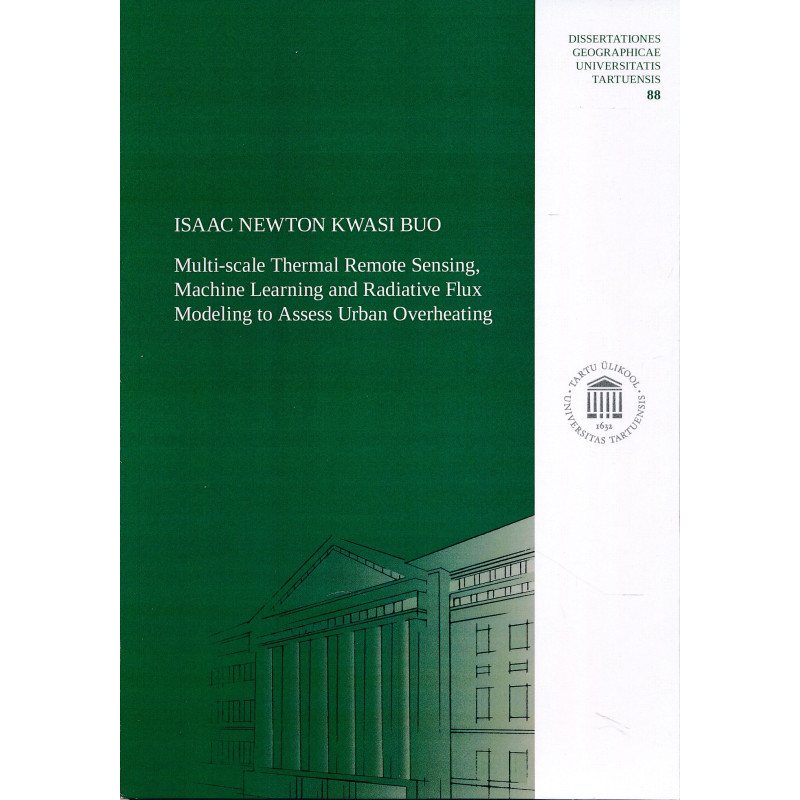





Isaac Newton Kwasi Buo
Tartu : Tartu Ülikooli Kirjastus, 2023
115 p. : ill.
ISBN: 9789916272503
Dissertationes geographicae Universitatis Tartuensis, 1406-1295 ; 88
Paperback dissertation in very good condition.
Cities are warmer than their surrounding rural areas because of the abundance of impervious and heat-trapping surfaces. During a heatwave, a city’s ambient temperature rises to levels detrimental to the well-being of urban dwellers. This is known as urban overheating. Current climate projections indicate that heatwaves will increase in frequency with higher intensities. Lack of spatially explicit thermal data at various scales poses a significant challenge for city governments in developing comprehensive heat mitigation plans.
This thesis proposes using remote sensing, machine learning, and radiative flux modeling to generate multi-scale thermal datasets for evaluating urban overheating. The thesis addresses two challenges when using satellite land surface temperature (LST) to assess urban overheating—the first concerns missing data due to clouds obscuring the satellite’s view of the Earth. The second is the trade-off between spatial and temporal resolution that must be made when using LST to assess overheating. The thesis created machine learning models to fill gaps in satellite LST and generate synthetic LST at local climate scales to address these challenges.
The thesis also examines how Mean Radiant Temperature (TMRT) - the total heat load on a human body can be modeled for large cities at high spatial resolutions and how shade available to pedestrians can be quantified by calculating sidewalk shade coverage.
When combined with socio-economic and demographic data, the datasets generated in the thesis will inform heat action plans in the respective study sites. Further research should improve machine learning models to predict LST and combine pedestrian heat exposure with travel patterns data. The thesis concludes by emphasizing the importance of making cities heat-ready to ensure the safety and well-being of urban dwellers, especially vulnerable populations.